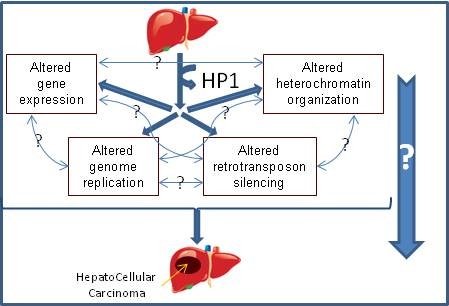


We have established several mice and cellular models in which each of the genes encoding these proteins has been either inactivated or mutated. These models will allow us, through a combination of molecular, cellular and organismal approaches, to address several key questions: (1) how these proteins do influence chromatin and nuclear organization? (2) What is the link between chromatin/nuclear organization and cellular functions? (3) What are the partners involved in these functions and (4) How mis-regulation of this level of information can lead a normal cell to transform into a cancerous cell.
Our results will provide new insights into the understanding of the molecular mechanisms underlying the establishment and/or the progression of numerous cancers of epigenetic origins and ultimately will allow us to propose new therapeutic strategies specifically targeting chromatin regulators.
